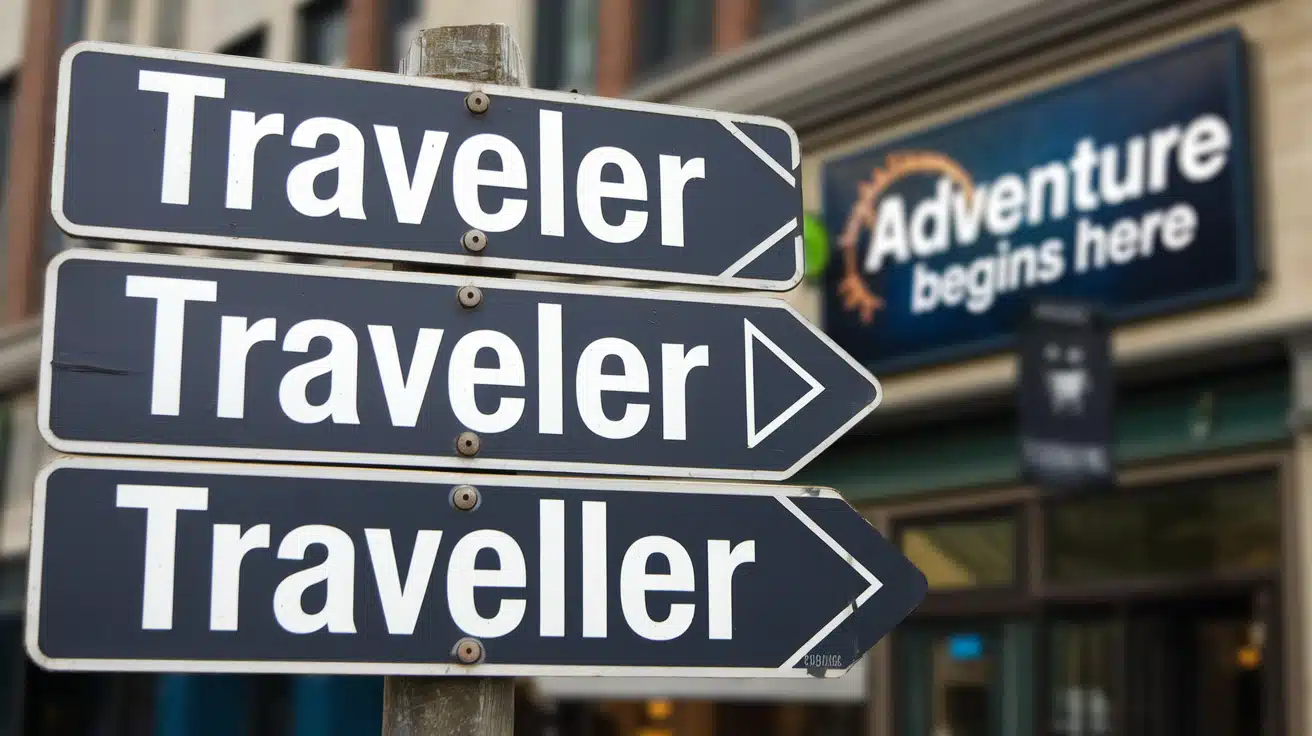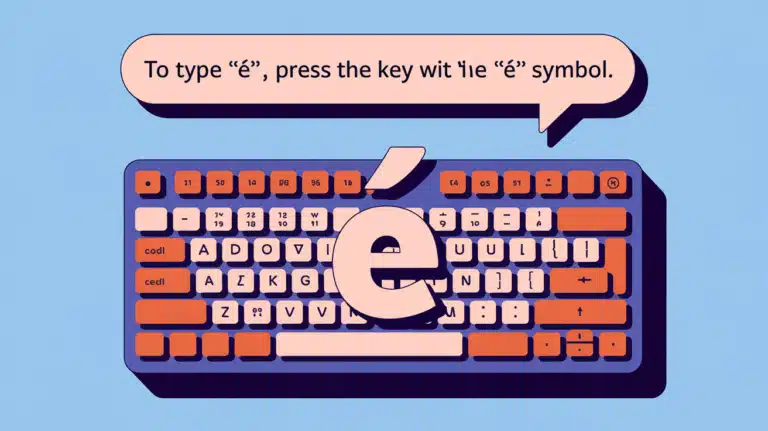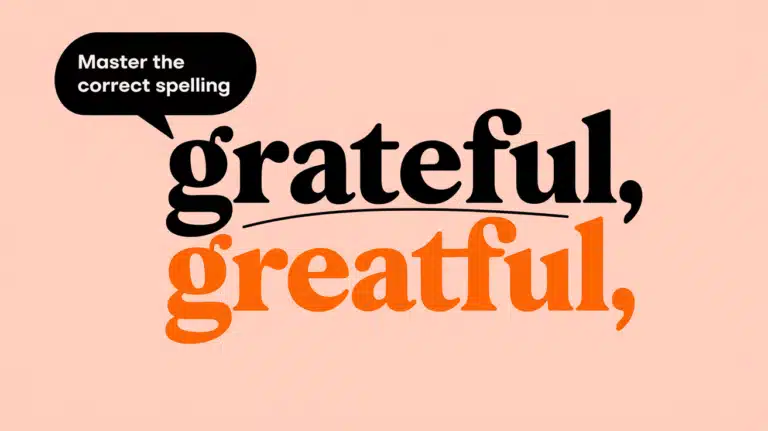Traveler or Traveller: Navigating the Spelling Seas of the English Language
In the vast ocean of English language quirks, few waves ripple as consistently as the “traveler” vs. “traveller” debate. This linguistic lifeboat will guide you through the choppy waters of American and British spelling differences, helping you dock safely at the harbor of proper usage. Buckle up, fellow language enthusiasts, as we embark on a journey that’s anything but pedestrian!
Introduction: The Tale of Two Spellings
Ever found yourself scratching your head, wondering if you should book a traveler’s insurance or a traveller’s insurance? You’re not alone. This spelling conundrum has puzzled writers, editors, and globe-trotters for decades.
The divergence between “traveler” and “traveller” isn’t just a typo gone viral. It’s a testament to the rich tapestry of English language variation across the globe. As we’ll discover, this seemingly small difference carries the weight of historical shifts, cultural identities, and evolving linguistic norms.
“Language is the road map of a culture. It tells you where its people come from and where they are going.” – Rita Mae Brown
American English: The Case for “Traveler”
The Great L-Dropping Expedition
In the land of stars and stripes, “traveler” reigns supreme. But why did Americans decide to travel light and drop that extra “l”?
The shift towards simplified spelling in American English began in the late 18th century, championed by linguistic mavericks like Noah Webster. Webster believed that American spelling should reflect American pronunciation and sought to streamline English orthography.
Read About : Or vs Nor: the Art of Coordination in English
Consistency is Key
The single “l” in “traveler” aligns with other -er words in American English:
- Canceled
- Marveled
- Leveled
This consistent approach to spelling helps maintain a uniform look in American texts and reduces confusion for learners.
American Style Guides: The Traveler’s Compass
Major American publications and style guides, including the AP Stylebook and the Chicago Manual of Style, endorse the “traveler” spelling. If you’re writing for an American audience or publication, this is your go-to version.
British English: Championing “Traveller”
A Double-L Tradition
Across the pond, the British stick to their guns (or should we say, their quills?) with the traditional spelling of “traveller”. This adherence to the double “l” is not just about keeping things old school; it’s part of a broader pattern in British English.
The -ller Family Reunion
“Traveller” isn’t alone in its double “l” glory. It’s part of a bigger linguistic family in British English:
- Cancelled
- Marvelled
- Levelled
This consistency within British English helps maintain its distinct identity in the face of globalizing language trends.
You can Also Read About : Cart vs Kart: Decoding the Spelling Mystery
In Good Company: British Media and Literature
From the hallowed pages of The Guardian to the latest bestseller from a British author, you’ll find “traveller” comfortably nestled in its double “l” home. It’s as British as a cup of tea or a rainy day in London.
Global Usage: A World Tour of Preferences
Canada’s Spelling Identity Crisis
Oh, Canada! Straddling the line between American and British influences, Canadians often find themselves in a spelling pickle. While officially aligned with British spelling conventions, the proximity to the U.S. has led to a mix of practices.
| Spelling | Preference |
|---|---|
| Traveller | Official Canadian spelling |
| Traveler | Commonly used due to American influence |
Down Under: Australia and New Zealand
In the land of kangaroos and kiwis, “traveller” hops ahead. Australia and New Zealand generally follow British spelling conventions, keeping that extra “l” firmly in place.
The Global English Landscape
As English cements its status as the lingua franca of the business world, non-native English-speaking countries often grapple with which spelling to adopt. The choice often depends on historical ties, educational systems, and media influences.
Digital Age Implications
SEO: Does Spelling Make or Break Your Ranking?
In the cutthroat world of search engine optimization, every letter counts. But does Google care if you’re a traveler or a traveller?
The short answer: not really. Search engines are smart enough to recognize these spelling variations as referring to the same concept. However, it’s wise to use the spelling most common in your target market for the best results.
Autocorrect: Friend or Foe?
We’ve all fallen victim to the sometimes-overzealous autocorrect function. When it comes to “traveler” vs. “traveller”, most modern devices and software are savvy enough to recognize both spellings. However, they often default to one based on your language settings.
Pro tip: Check your device’s language settings to ensure it aligns with your preferred spelling convention.
Social Media: Where Spellings Collide
In the borderless world of social media, American and British spellings mingle freely. This melting pot of linguistic variations can lead to interesting exchanges and occasional misunderstandings.
“In the world of social media, we’re all travelers in a global village, regardless of how we spell it.” – Anonymous
Grammar Rules and Exceptions
The -ed and -ing Forms: A Consistent Journey?
While the base word may differ in spelling, both versions typically follow the same rules for their -ed and -ing forms:
- Traveled/Travelled
- Traveling/Travelling
Compound Words and Proper Nouns: Breaking the Rules
Language loves to keep us on our toes. Sometimes, compound words and proper nouns play by their own rules:
- Time traveler (even in British English)
- Gulliver’s Travels (proper noun)
Style Guide Showdown
For the ultimate in consistency, always consult the style guide relevant to your publication or region. Here’s a quick reference:
| Style Guide | Preferred Spelling |
|---|---|
| AP Stylebook | Traveler |
| Chicago Manual of Style | Traveler |
| Oxford Style Manual | Traveller |
The Evolution of Language
A Brief History of English Spelling
English spelling has been on a wild ride since its inception. From the Great Vowel Shift to the invention of the printing press, numerous factors have shaped how we spell words today.
Crystal Ball Gazing: The Future of Spelling
Will we see a convergence of American and British spellings in the future? Or will new variations emerge? While we can’t predict with certainty, the trend towards globalization suggests we might see more flexibility in accepted spellings.
Globalization’s Spell on Spelling
As English continues to be adopted as a global language, we’re seeing interesting phenomena:
- Hybrid spellings in international English
- Increased acceptance of multiple spelling variants
- The rise of “International English” in business communication
Practical Tips for Writers and Editors
- Know Your Audience: Use American spellings for U.S. audiences, British spellings for UK readers.
- Maintain Consistency: Stick to one spelling convention throughout your document.
- Check Style Guides: When in doubt, consult the relevant style guide for your publication or region.
- Use Technology Wisely: Set your spell-check to the appropriate language variation.
- Be Flexible: In international contexts, be prepared to adapt to different spelling conventions.
Cultural Implications
Spelling as Identity
The way we spell words like “traveler” or “traveller” can be a marker of cultural identity. It’s not just about correctness; it’s about belonging to a linguistic community.
Reactions to “Wrong” Spellings
Have you ever felt a twinge of annoyance seeing the “other” spelling? You’re not alone. Many people have strong feelings about these spelling differences, often tied to a sense of national or cultural pride.
Preserving Linguistic Diversity
While some argue for standardization, others champion the preservation of spelling variations as a way to maintain the rich tapestry of English language diversity around the world.
Conclusion: Embracing the Diversity of English
As we wrap up our spelling debate journey, let’s remember that language is a living, breathing entity. The “traveler” vs. “traveller” distinction is just one small example of the beautiful complexity of English.
Whether you’re a traveler exploring American literature or a traveller delving into British classics, the most important thing is clear communication. So, pack your bags (and your dictionaries), and embrace the linguistic adventure that awaits!
FAQs
- Is one spelling more correct than the other?
No, both spellings are correct in their respective regions. - What about other words with similar spelling differences?
Examples include color/colour, favorite/favourite, and center/centre. - How do I choose which spelling to use in my writing?
Consider your audience, publication guidelines, and regional context.
Remember, in the grand journey of language, we’re all travelers (or travellers) together, exploring the ever-changing landscape of English. Happy writing, and safe linguistic travels!







